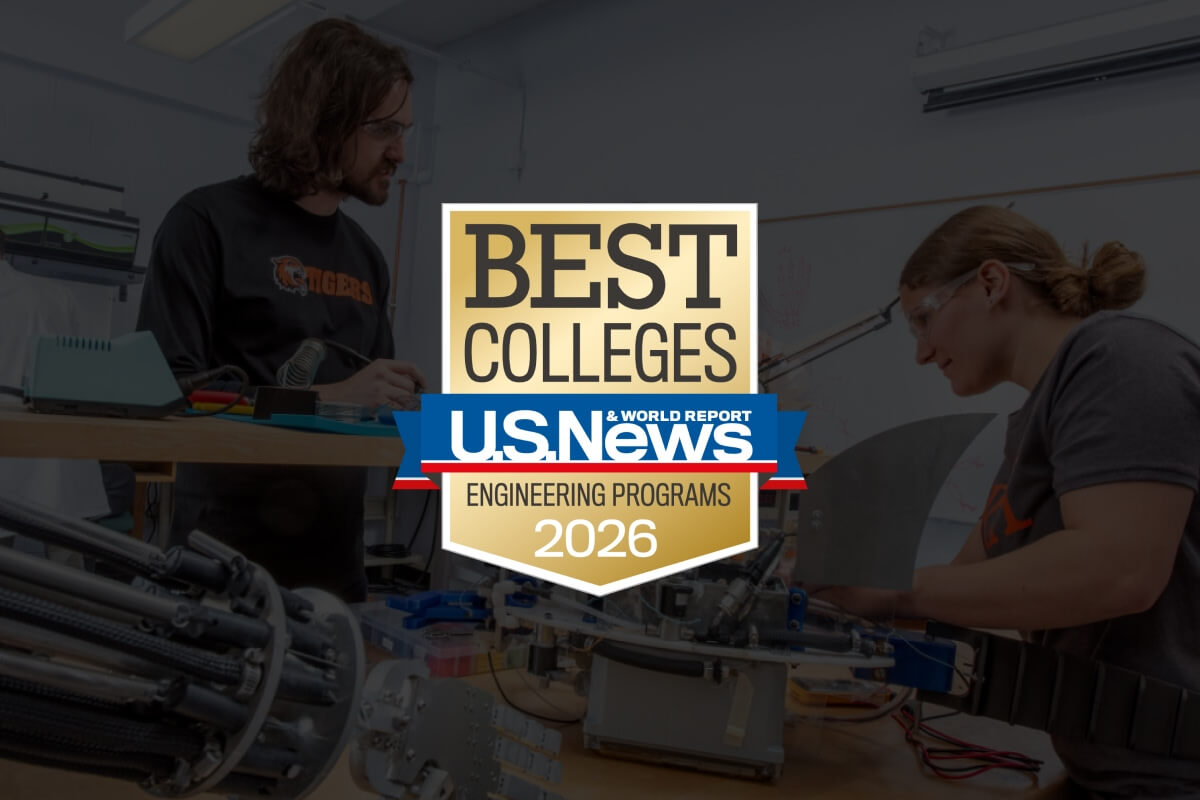Secure Systems Option - Computer Engineering BS

Secure Systems Option
Computer Engineering BS
- RIT /
- Rochester Institute of Technology /
- Academics /
- Secure Systems Option - Computer Engineering BS
In RIT’s secure systems option, you’ll gain the knowledge, skills, and perspective needed to develop, analyze, and implement secure hardware and software systems.
Overview for Secure Systems Option - Computer Engineering BS
Why Pursue Secure Systems at RIT?
Specialized Curriculum: Advanced courses in secure hardware design, network security, machine learning/artificial intelligence for cybersecurity, and cryptography.
Industry Work Experience: Four required blocks of cooperative education mean hands-on, full-time, paid work experience in industry.
Careers at Industry-Leading Companies: Students have secured co-ops and network security jobs at Nvidia, AMD, Micron, Lockheed Martin, Apple, L3Harris, and more.
The objective of the secure systems option is to develop the knowledge, skills, and mindset necessary to design, evaluate, and implement secure hardware and software systems using embedded microprocessors, FPGAs, and application-specific integrated circuits. This option includes the fundamentals of hardware security and trust, secure system design practices, secure coding, encryption/decryption, side-channel attacks on hardware devices, hardware manufacture and test, and security verification and validation. You’ll also engage in cross-disciplinary learning opportunities as you explore advances in cryptography from a hardware perspective and artificial intelligence for advancing cybersecurity analytics.
What is System Security?
System security is a very broad term referring to vulnerability protection that comes from both hardware circuitry and/or software that is installed on that hardware. In the modern era, it is mandatory to address secure system design methodologies in the context of any computing system that is part of critical infrastructure, IoT, cloud, appliance, or e-commerce/web services.
Courses in Secure Systems
RIT’s computer engineering BS begins with fundamental math, science, and technology courses. Emphasis is placed on selected areas of computer science, software engineering, and electrical engineering.
The secure systems option leverages a professional elective and two open electives from the BS in computer engineering to provide a foundation in secure systems via related computer engineering, computer security, and software engineering courses.
-
#57 Best Engineering Undergraduate Programs, 2026
RIT’s engineering majors are ranked among the Best Undergraduate Engineering Programs in the nation.
-
Join Us for Accepted Student Open House
Visit campus on March 28 or April 11 to meet faculty, tour campus, and ask your questions.
-
Join us for Fall 2026
There's still time to apply. For some programs, applications will be reviewed on a rolling, space-available basis.
Careers and Experiential Learning
Cooperative Education
What’s different about an RIT education? It’s the career experience you gain by completing cooperative education and internships with top companies in every single industry. You’ll earn more than a degree. You’ll gain real-world career experience that sets you apart.
Co-ops and internships take your knowledge and turn it into know-how. Your engineering co-ops will provide hands-on experience that enables you to apply your engineering knowledge in professional settings while you make valuable connections between classwork and real-world applications.
Students who choose the secure systems option will complete four blocks of co-op. A sample of companies that hire RIT students for co-ops and for full-time employment in secure systems include Nvidia, AMD, Micron, Lockheed Martin, Apple, L3Harris, and more.
Admissions and Financial Aid
This option is part of the computer engineering BS. Please visit the degree program page for admission requirements.
Contact
- Roy Melton
- Associate Department Head, Computer Engineering
- Department of Computer Engineering
- Kate Gleason College of Engineering
- 585‑475‑7698
- roy.melton@mail.rit.edu
Department of Computer Engineering













